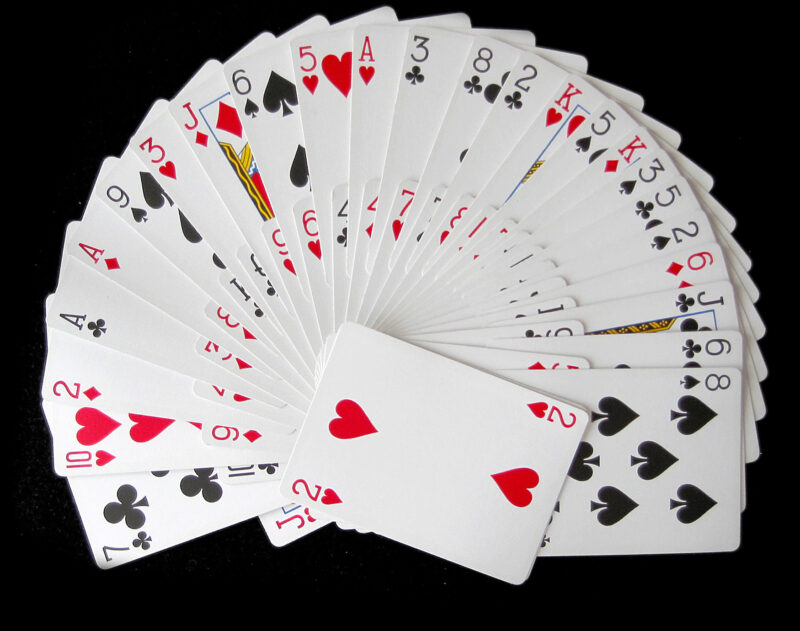It’s been more than a year since most of us have ventured to someone’s house to meet a bunch of friends and acquaintances to gather around a table while passing chips and cards. With live poker starting to return in the US, it’s only a matter of time before private home games return, too. Will you be ready?

There are many poker games in just about every location in the English-speaking world (and much of the non-English speaking world too, for that matter). I’ve played in many hundreds of them. Some of these are in public poker rooms; but most are in private homes, stores, restaurants, offices, bars, and private clubs. Though you may not know about them, they are surely there. You just have to know someone to invite you in.
Finding that someone can be a little tricky. Even where private poker is fully legal, hosts are often reluctant to make their games too well-known, lest they be targets of cheats, thieves, and other undesirables. Players tend to keep their private home games private. But with a well-organized plan of action, you’re almost assured of getting into a game, especially in or near your home base.
Broadly speaking, you’re going to try to find a personal connection to a good private game by using every avenue available to you. I’m going to give you a thorough and systematic way of doing so. We’ll start with the most obvious.
1. Make a list of personal contacts
Make a list of all of your contacts in your community, including family, friends, neighbors, work associates, and merchants. These are the people you know at least fairly well. Contact them individually. Don’t send out a blast email or text; you need them to know that you’re reaching out personally. Keep things light and friendly, share with them your interest in poker, and ask them if they know anyone who plays.
Follow up with any lead you get. Keep track of all the contacts you’ve made, and keep at it until you’ve either contacted everyone or found a game. Don’t get discouraged if you don’t find the ideal game after going through your list. Realize that once all of your personal contacts know that you’re looking for a game, they may well remember you when they hear of one in the future, and connect you to it.
2. Contact your social network in the area
We don’t just mean social media. We mean connect with groups in your area with whom you may have a legitimate social connection. If you’ve been unsuccessful in finding a game, contact those groups and organizations that know a thing or two about hosting social poker events. These can include:
- Religious organizations such as churches, mosques, temples, and synagogues
- Veteran’s groups such as VFW, DAR, AmVets, and American Legion
- Social clubs
- Business, professional, and fraternal organizations like the Elks, Moose, Rotary, Kiwanis, Knights of Columbus, Zonta, Masons, Order of the Eastern Star
- Labor unions (especially those with their own buildings or hiring halls)
Some, like the fraternal, business, and professional organizations are open to nearly everyone. Others are limited to people of a certain religion, ethnicity, nationality, or profession. Make contact by phone or, ideally, in person.
If you’re not already a member, inquire about joining. While you’re in the process of asking about membership, ask about the different activities they have. Find your way to asking about card games. Try not to make it seem too obvious that the reason you might want to join is just so you can play poker.
If there’s a good chance they have members who may play poker, and if the membership requirements aren’t too onerous, or dues too high, consider joining at least for a year. I’ve found many poker games this way.
3. Go online
Do a Google search for your community and poker. There will likely be some Facebook groups or Meet Up groups in your area connected to poker. Send them a message asking how you can sign up for a game. But don’t get your hopes up. Many of these groups started out well, but shut down from lack of interest or too much interest, once they got a regular game going.
Nevertheless, I’ve found games in many places, including my home city of Boston, using this method. There are also a few websites designed to place interested players into home games in various towns that might be worth a shot. You’ve got nothing to lose, but I wouldn’t put much stock into them.
Though there are still multiple listings for games in many cities, I’ve found that these have almost entirely dried up, and I haven’t gotten a response to any inquiries in many years.
4. Check free games in bars and restaurants
Some of these “free” games were going strong before COVID, but then shut down. They were of dubious value for playing, as they usually had only nominal prizes meant to encourage people just to eat and drink (like trivia nights), but they were great places for finding players who knew of private games.
With vaccines now more widely available, and gathering restrictions easing in many places, some of these games have started back up. If they have, go to them with the intent of finding those private games. Don’t be too obvious about your inquiries. Be gregarious, interested, and open to any invites you might be able to elicit. If the games aren’t up and running yet, have a chat with the owner or manager. Having been part of the poker scene back before COVID, they may be able to fill you in on any private action in the area today.
5. Call the better business bureau?
No, I’m not talking about the organization that handles consumer complaints. But in addition to bars and restaurants, I have found several other types of businesses to be my best fishing holes for finding a good game. Stores that cater to people who play non-poker games, for example, such as MAGIC, Dungeons and Dragons, chess, bridge, and other strategy games often are frequented by people who know people who play poker.
Other businesses where I have found overlapping interests with poker players, and therefore leads into games, include:
- Bowling alleys
- Hotels (if there’s no concierge ask the desk clerk)
- Pool halls
- Pawn shops
- Check-cashing shops
- Cab drivers
- Barbers
It helps to be at least a little discrete and to be a real customer of the business. So, to the extent you can, when you visit these establishments purchase something, get the haircut, take the cab, bowl a couple of frames, etc.
Treat whatever leads you find like gold. Keep track of every poker player and game you can find. Follow up on every lead. Your best connection to your ideal game may well be a player in a game that’s not to your liking.
So, until you find that ideal game, play in whatever game you can find, at least once, even if it’s for tiny stakes or with a structure you don’t like. Again, without being too obvious, use your entrée into one game to serve as a means of getting invited to other games until you find the home game that suits you best.


